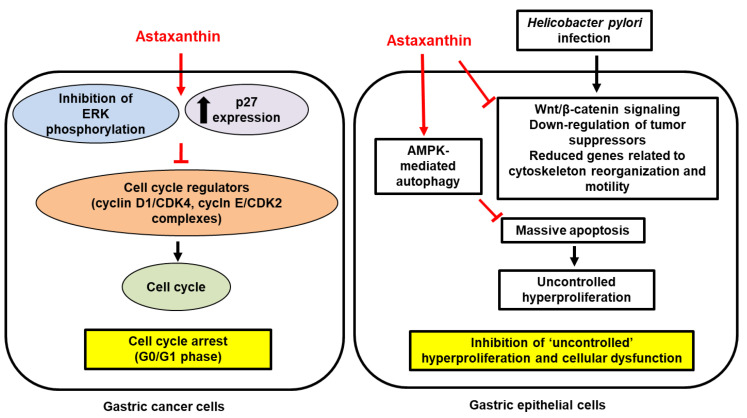Figure 2.
The inhibitory effect of astaxanthin on hyperproliferation and cellular dysfunction in gastric cancer development and progression. In gastric cancer cells, astaxanthin inhibits phosphorylation of extracellular signal-regulated kinase (ERK) but stimulates expression of tumor suppressor p27 that inhibits the formation of cell cycle regulators such as cyclin D1/cyclin-dependent kinase 4 (CDK4) and cyclin E/CDK2 complexes, leading to cell cycle arrest at G0/G1 phase. In Helicobacter pylori-infected gastric epithelial cells, astaxanthin increased 5’ adenosine monophosphate-activated protein kinase (AMPK)-mediated autophagy, resulting in inhibition of massive apoptosis and uncontrolled hyperproliferation. Helicobacter pylori infection activates Wnt/β-catenin signaling pathway. However, it decreases expression of tumor suppressors and genes related to cytoskeleton reorganization and motility. Therefore, astaxanthin inhibits hyperproliferation and cellular dysfunction in the pathogenesis of gastric cancer development. Inhibit,  ; increase,
; increase,  . Red arrows represent the effects of astaxanthin.
. Red arrows represent the effects of astaxanthin.

